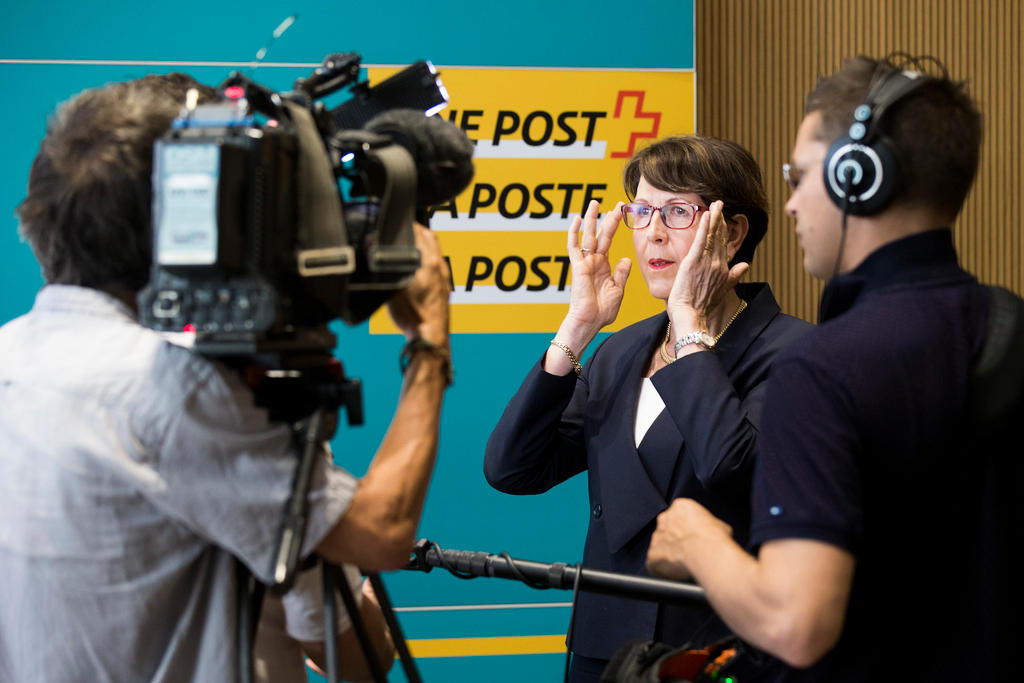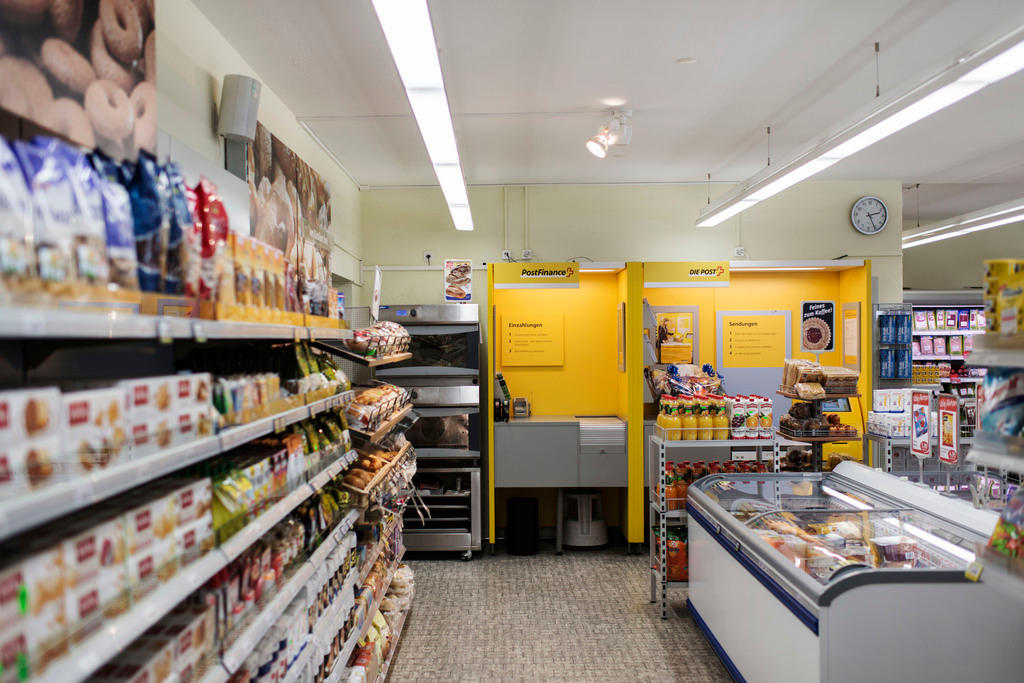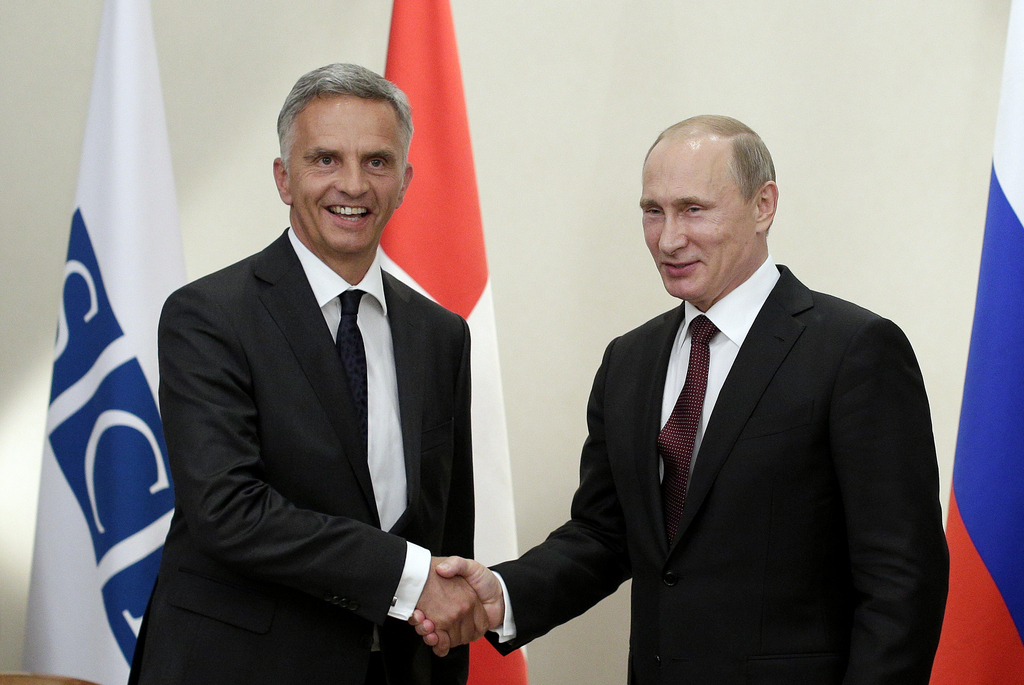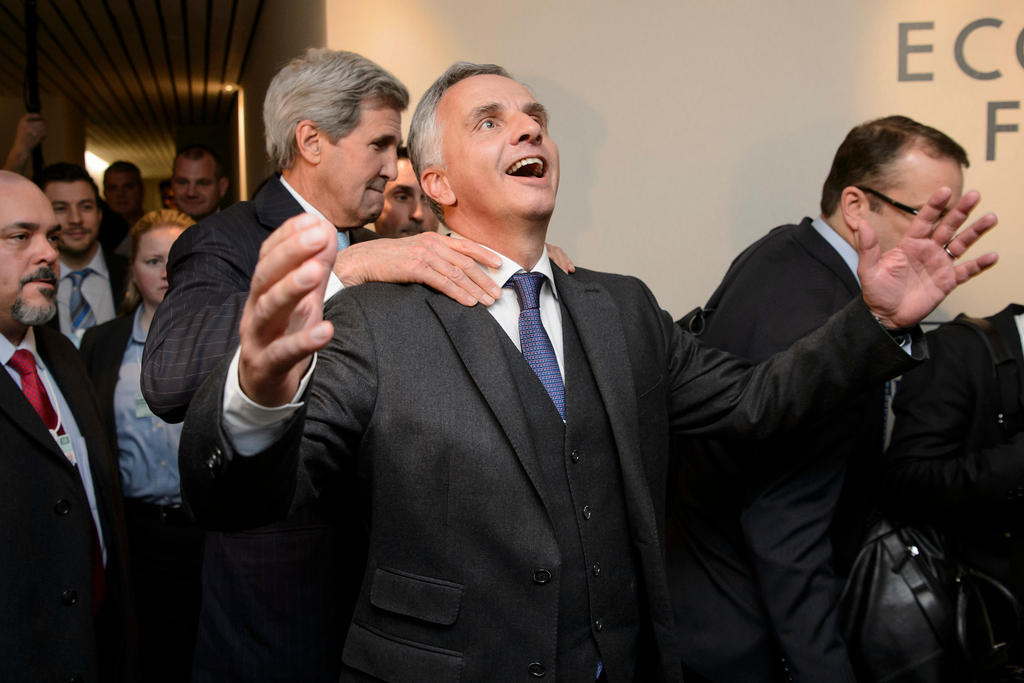Stories making the Swiss Sunday papers

The shake-up of Swiss Post, the aftermath of Didier Burkhalter’s resignation, and the socialising effects of education make the Swiss newspapers this weekend.
Many papers discuss the changes at Swiss Post, which announced the practicalities of its next wave of downsizing this week. By 2020, we learned, just 765 traditional post offices will still be guaranteed in the country, compared with 1,320 last year and 3,500 at the turn of the century.
The “yellow giant” and its boss Susanne Ruoff have come under fire from all sides, says the Tribune de Genève. Trade unions and towns fear a “haemorrhaging” of services, while politicians have raised “accusations of wanting to maximise profits” rather than guarantee universal service.
In the face of the criticism, Ruoff opted for the maxim that “attack is the best form of defence,” says the paper. She even transformed into a “magician” when it came to selling the figures of the restructuring: what with new “delivery services, deposit points and automatic parcel drop-offs”, the number of access points will actually increase, she said.
Ruoff is also interviewed in the SonntagsZeitung, where she talks about the “innovation” which Swiss Post is exploring: self-driving vehicles and delivery drones, which are currently in a pilot phase. Does this mean more job losses? “We do not want to get rid of anyone,” she says: “we will help [those affected by the changes] find a new job, either externally or in the post office.”
Equal education
Le Matin Dimanche tackles the question of education as a driver of integration and social cohesion. Though this works better in Switzerland than in neighbouring countries, it says, the gaps between students here still reflect socio-economic status.
Based on a recent study by researchers at the University of Geneva, the piece presents a league table of cantons according to the extent to which socio-economic background influences results in a certain subject – in this case, maths. Best-placed is Jura, with a negligible correlation, while Zurich brings up the rear.
Why does this happen? The paper outlines four problems, including the “streaming” system in many Swiss second-level schools, whereby weaker and stronger students are separated at an early stage into different groups.
“The entry age for schooling” is also a factor (starting school earlier can level out differences) while the overloading of homework can privilege those with better support structures outside school.
Overall, however, as the head of the research project points out, the situation is not dire: “Swiss students have a good level of competences, above average. And social inequalities in schools are slightly less than the OECD average.”
A ‘young’ cabinet minister
As the search continues for a cabinet minister to replace resigning foreign minister Didier Burkhalter, several Swiss newspapers continue to speculate.
Much talk is of geography: with the next minister slated to come from the south of the country, Le Matin Dimanche investigates the notion of “Latin solidarity”: are French-speaking and Italian-speaking Switzerland united in anything other than an opposition to their German-speaking bigger brother?
The answer is mixed. “The link is less and less strong,” says parliamentarian Filippo Lombardi. “It only works when there is a common interest,” according to political scientist Oscar Mazzoleni. Indeed, says historian Olivier Meuwly, perhaps the world “alliance” would be more pragmatic, more fitting, than “solidarity”.
Meanwhile, in the Ostschweiz am Sonntag, the whole notion of a Latin successor is questioned by radical party parliamentarian Walter Müller, who wants a candidate from Eastern Switzerland to raise that region’s representation. “There is a striking supremacy of Western Switzerland in the cabinet,” he says.
Le Temps, however, avoids the question of origin. Rather, its front-page editorial worries about technological change, a greying political scene, and growing divisions between generations: centred on “our capacity, or not, to position ourselves in a universe more and more invaded by technology.”
In a nod to the fresh-faced leaders of France and Canada, “who act like a sepia filter to the other political faces”, the piece calls for a candidate with a feel for technology. “A leader who, simply, is desired by the under 40s who want to reconnect with politics.” “A young cabinet minister.”
swissinfo.ch/dos

In compliance with the JTI standards
More: SWI swissinfo.ch certified by the Journalism Trust Initiative




You can find an overview of ongoing debates with our journalists here. Please join us!
If you want to start a conversation about a topic raised in this article or want to report factual errors, email us at english@swissinfo.ch.